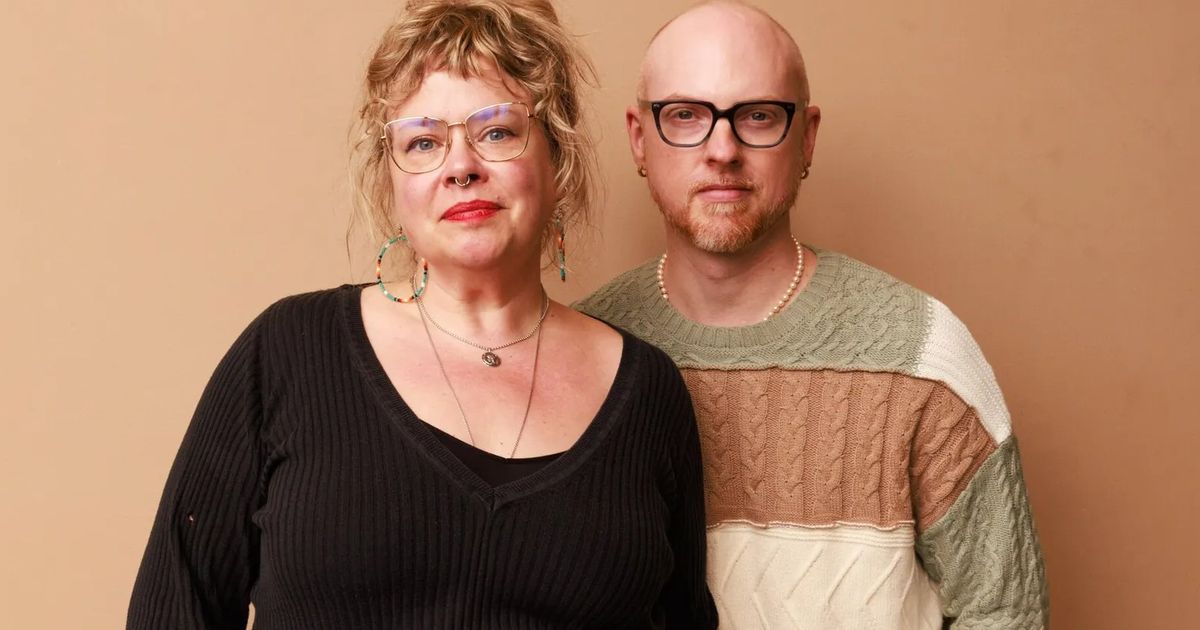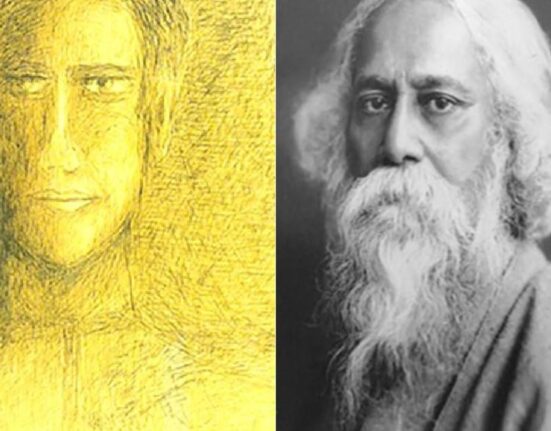Should Intiman Theatre throw away its Tony Award?
For Artistic Director Jennifer Zeyl, the answer is yes: After all, what does a Regional Theatre Tony Award from 2006 have to do with the Intiman of today?
She’s joking (or is she?) but Zeyl is serious when she says she prefers the Teeny Award, given to Seattle’s Intiman in 2018 by the smart young minds at teen arts advocacy organization TeenTix. That Teeny Award honored the company’s production of “Dragon Lady,” theater artist Sara Porkalob’s cabaret musical about her Filipina gangster grandmother. That, Zeyl said, is an award that matters to who Intiman is today, a company fiercely dedicated to the diverse community in which it operates.
On Nov. 1, Intiman kicked off its 50th anniversary season with the one-woman musical “Cindy of Arc,” the first in a four-show season that also includes the return of beloved holiday show “Black Nativity” in partnership with The Hansberry Project. For a company whose brushes with death and board vs. staff battle have made headlines in the last dozen years, surviving to celebrate its 50th anniversary wasn’t always a sure thing.
Now, two years into a partnership with Seattle Central College, where Intiman is the theater-in-residence, the company says it is more financially stable than it’s been in years, thanks in part to its ability to continually re-imagine what a theater company can look like. In many ways, said Zeyl, Intiman’s roller-coaster history gave the company a leg-up when the pandemic ripped the rug out from under the American theater. Pivot? No problem.
As theaters both locally and nationally struggle, Intiman’s history of mission-driven shapeshifting could provide some lessons for how theaters can survive. Intiman is producing some shows, yes, but it’s also constantly experimenting with new production models, focusing on theater as a community resource, and investing, culturally and financially, in cultivating a new generation of theater artists and theater patrons. If that’s not making theater, then what is?
“People are always like, ‘Intiman — it’s just not what it was,’” said Managing Director Wesley Frugé. “And my first response is always: And isn’t that amazing? That a company in a fast-changing city is also changing to meet the needs of the city as it is today?”
In the beginning
When Margaret “Megs” Booker founded Intiman Theatre in 1972, she was fresh off a stint in Sweden working with heavy-hitting European directors and in large, government-subsidized companies. Returning to American theater was a shock to the system. “I was used to working with a really collaborative artistic environment,” Booker recalled, of those early days. “So, I’m thinking, ‘How am I going to create work, not just for me but for other people?’”
(Note: Yes, Intiman was founded in 1972 but it officially incorporated in 1973 and 2022 still wasn’t a good year for a great big party, so this is the 50th season. Go with it.)
From its first shows in a former ceramics studio in Kirkland, growth was the name of the game for Intiman, fueled by “a lot of competition and a lot of camaraderie,” Booker said. There were world premiere productions that would go on to win a Pulitzer (“The Kentucky Cycle”) and Tonys (“The Light in the Piazza”); a long-term home in the Intiman Playhouse on the Seattle Center campus; and that 2006 Regional Theatre Tony Award, an artistic honor given annually to a company contributing to the growth of American theater.
Rising theater star Kate Whoriskey took the reins from outgoing Artistic Director Bartlett Sher in 2010. Then, in April of 2011, the theater suddenly canceled the rest of its season and laid off its entire staff after major debt came to light. The theater was poised to close until Andrew Russell, then an Intiman associate director, proposed to the board that the company reconfigure into a stripped-down summer theater festival under his leadership.
“It’s easy to just throw it all away,” said Russell, who remained Intiman’s producing artistic director until 2017. “But what is the net gain of closing up shop versus the net gain of pivoting and trying something completely different?”
If your budget goes from, say, $6 million to $1 million, Russell said, that’s a lot less than you had before, certainly, but it’s still a lot more than zero, and that’s still a lot of artists getting paid. “If that means [local theater artist and professor] Valerie Curtis-Newton directs more theater, that’s a win,” he said. “If that means that more artists get more weeks of work toward their [union-sponsored] health insurance, that’s a win.
“That’s where the reminder of what nonprofits are, relative to commercial ventures, is important — literally, part of the 501c3 deal is, ‘how am I serving the community?’” he said.
Intiman Theatre Festival debuted in the summer of 2012, packed with local talent, and the company’s roller-coaster ride slowed (at least publicly) for a while. The company left its Seattle Center home and produced nomadically for several seasons, leaned hard into supporting social justice and local artists, and in 2019 finally retired the massive debt it had carried for nearly a decade. But later that same year, after the board and staff clashed over finances (the board said the organization was out of money and would probably have to close shortly; staff said the money could be raised), the theater headed off yet another imminent closure through emergency fundraising.
“Every single time, the artists are the ones that fight for this theater,” Zeyl said.
Partnership with SCC
After a season hiatus to rebuild in 2020, which coincided with the early pandemic, Intiman and Seattle Central College launched their partnership in 2021. The theater company operates autonomously but produces its shows at SCC’s venues, the Erickson Theatre and Broadway Performance Hall on Capitol Hill.
The centerpiece of the partnership is a two-year degree program in technical theater, designed to both bolster waning numbers in technical theater professions, such as scenic and lighting design, and provide creative youth a pathway to well-paying union jobs.
The program welcomed its first class of 17 students in the fall of 2021, though it shrank to just four graduates this spring — a decline Zeyl attributed in part to students discovering their ongoing discomfort with in-person instruction (an integral part of this program) during COVID. Eleven SCC students are currently on track to graduate in 2024, and the 17-student class of 2025 just started this fall.
Intiman productions are now also classrooms where these SCC students get real-world, behind-the-scenes experience. When Intiman itself doesn’t have enough positions to give every student adequate professional experience, Zeyl said, they partner with other institutions such as the 5th Avenue Theatre, ACT Theatre and On the Boards, bolstered by strong support from the professional technical theater community.
There’s “massive attrition in the industry” right now and technical theater professionals still working “are very much looking to pass on their knowledge,” Zeyl said. “Those that are hanging in there are very, very invested in the next generation.”
Along with the SCC program, Intiman also helps steward arts education programs South End Stories and the STARFISH Project, which provides local high schoolers with professional training in technical theater skills.
Rebuilding blocks
Also important as Intiman rebuilds: a replenished savings account. When Frugé became managing director in April 2022, he said, Intiman had $5,000 in its savings account and now it has $350,000, though he is quick to point out that theater funding relies on unpredictable events like one-time grants and donations, so present stability is rarely a promise of future success. And they’ll be sinking a lot of that $350,000 into this upcoming season as they “go big to bring people back,” said Frugé.
For a legacy company, finding a new stable address — something that longtime fans missed after the company left Seattle Center, saying it was hard to keep track of where their performances were being held — was an important box to check, and one that Frugé said is already reflected in increased ticket sales.
Another uphill battle has been rebuilding a stable board focusing on those unique characters that, like Intiman’s current leaders, “are fascinated by the problem of theater as a social service,” as Zeyl put it.
Today, Intiman has an entirely new board than it did in 2019, currently led by Kevin Shah, board president and a local tech leader. An enthusiastic first-time board member, Shah said he gravitated toward the Intiman values he saw being both professed and lived: transparency, racial equity and building an organization that is representative of the community that it’s serving.
In addition to “Cindy of Arc” and “Black Nativity,” this Intiman season includes The Seagull Project’s coproduction of Maxim Gorky’s “The Lower Depths” and Vida Oliphant Sneed’s “The Lion Tells His Tale.” A world premiere play, “Lion” is a stage incarnation of Seattle storyteller and historian Delbert Richardson’s American History Traveling Museum: “The Unspoken Truths” exhibit.
The production model for each show is somewhat different; “Cindy” and “Lion” are each only running for a week, while “Black Nativity” and “The Lower Depths,” have longer runs. A small-but-mighty monthly membership program continues to grow, as does the impact of Intiman’s Free For Everyone program, which guarantees some free tickets are available at their box office an hour before each showtime. During the 2022-23 season, 56% of participants in that program, which gave away 247 total tickets, lived in households that earn less than $50,000 annually — a win for access when you consider that, in 2022, the estimated median income for Seattle households hit $115,400.
“It’s a professional theater and it’s a community theater,” Frugé said, when asked to describe the Intiman of 2023. “It belongs to the community, but this is a place where professionals work.”
This Intiman may bear little resemblance to the theater that premiered the luxurious 2003 musical “The Light in the Piazza,” which went on to win six Tony Awards in 2005. Why should it?
“We have accepted that the only version of organizational success is infinite growth,” Chicago theater maker Kate Piatt-Eckert recently told American Theatre magazine. “As a sector we have accepted this — and it’s not true.”
For the philosophically minded among us, Intiman suggests the thought experiment The Ship of Theseus, also known as the boat question: If, over time, every single piece of a boat is replaced, is it still the same boat?
Which brings us back to that Tony Award.
As Intiman continues to rebuild, its chosen component parts can be seen as a direct refutation of the doom-and-gloom articles of the last year bemoaning the death of American theater as we know it. Honor the past, certainly, but if dedication to history is sinking your company, what good is it doing? Missions and communities can change a lot in half a century.
As Frugé put it: “Even though we’re 50 years old, we’re just starting.”






